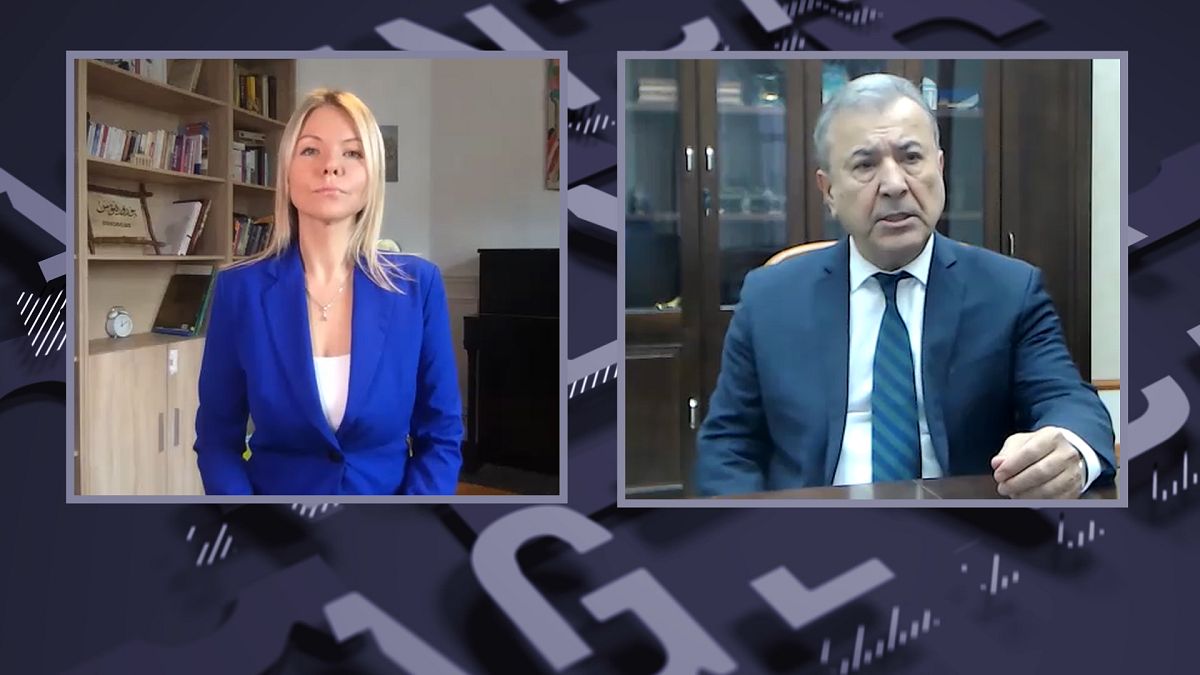First Deputy Chairman of the Senate of Uzbekistan Sodiq Safoev told Euronews how the regional strategy in Uzbekistan is set to change in the wake of October's elections.
In October, President Shavkat Mirziyoyev was re-elected for a second term in Uzbekistan. Five years ago, he initiated economic reforms and called for closer cooperation between Central Asian countries.
First Deputy Chairman of the Senate of Uzbekistan Sodiq Safoev told Euronews how the regional strategy in Uzbekistan is set to change after the elections.
You can watch the interview in the video player at the top of this article.
Euronews: In 2017, Uzbekistan launched economic reforms. There is still a lot to be achieved, ending corruption and privatisation of state assets, for example. How does the state plan to attract foreign investors, which is one of the main goals of the reforms?
**Sodiq Safoev: **To be competitive in attracting investments I believe political modernisation must be fast. This includes making the government more effective, small, transparent and accountable. Capacity building is vital for progress as well as decentralisation.
(Among the) highest priorities are a genuine, independent judicial system and human rights. The anti-corruption programme should be focused on the elimination of causes fueling corruption, which means economic liberalisation, support of entrepreneurship and large-scale privatisation and land reform.
Access to world markets has been of exceptional importance for a landlocked country like Uzbekistan, which is located in the very heart of Eurasia. This is why the cornerstone of the national strategy of Uzbekistan is to develop transport infrastructure for the formation of reliable transit corridors.
The general reforms are not an easy process, but there is no way back, transformations in Uzbekistan are irreversible.
Galina Polonskaya, Euronews: What are Uzbekistan’s plans for Central Asia and what impact does Uzbekistan aim to have on the development of the Central Asian region?
Sodiq Safoev: A few years ago, Central Asia was considered to be a zone of strategic uncertainty, today we can look at its prospects with greater optimism.
The main goal of Tashkent’s regional policy is to turn Central Asia into a zone of stability and sustainable development. And, first of all, address the growing environmental problems. In Central Asia, the rise of global warming is twice the world average. The growing shortage of water resources is a severe problem. What is left of the Aral Sea, once the biggest inland lake in the world, has become an epicentre of ecological catastrophe. At all times Central Asia was a single natural and climatic complex. And as the president, Mirziyoev said the top priority should be green diplomacy”.
Euronews: Before the Taliban took power, Afghanistan was among Uzbekistan's most important trading partners; there were plans to construct a railroad that would go through Afghanistan and connect landlocked Uzbekistan with seaports.
What is Tashkent’s strategy at this point when the situation in Afghanistan is seen as one of the biggest security issues for Central Asia?
Sodiq Safoev: Today, Afghanistan is once again standing on the verge of a humanitarian crisis. It is extremely vital to continue the involvement of Afghanistan in the regional and global processes.
The international community cannot repeat the mistakes of the past and leave this long-suffering country to the mercy of its fate. Long term peace in this country can only be resolved by national reconciliation and inclusive goals.
At the same time, a direct dialogue between the new Afghan authorities and the world community is also needed. It is necessary to continue the implementation of economic and infrastructural projects in Afghanistan. This will not only increase the potential involvement of the entire region and Afghanistan itself in international economic relations but also open up new opportunities for peacebuilding in Afghanistan.
